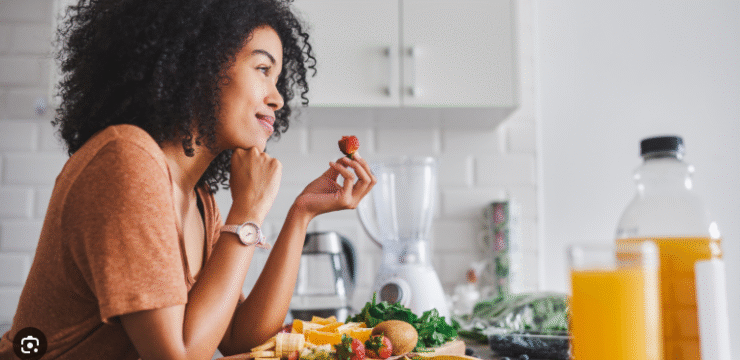1. Leafy Greens
Spinach, kale, and Swiss chard are low in calories but packed with fiber, iron, calcium, and antioxidants. They add volume to meals and keep you full without weighing you down.
2. Lean Proteins
Foods like skinless chicken, fish, eggs, tofu, and beans provide the protein your body needs to maintain muscle mass. Protein also helps control hunger and stabilizes energy levels.
3. Whole Grains
Brown rice, quinoa, oats, and barley are rich in fiber and essential nutrients. Unlike refined grains, whole grains digest slowly and keep you satisfied longer.
4. Fruits with Fiber
Berries, apples, and pears are naturally sweet but loaded with fiber and antioxidants. They’re a healthier alternative to sugary snacks and help keep cravings in check.
5. Legumes
Lentils, chickpeas, and black beans are nutrient powerhouses, offering protein, iron, and fiber. They’re versatile and can be used in soups, salads, or grain bowls.
6. Nuts and Seeds
Almonds, walnuts, chia seeds, and flaxseeds provide healthy fats, protein, and micronutrients. In small portions, they make satisfying snacks that support heart health.
7. Vegetables of All Colors
The more variety on your plate, the better. Bell peppers, carrots, tomatoes, and cruciferous veggies like broccoli are all low in calories but high in essential nutrients.
8. Healthy Fats
Avocados and olive oil provide monounsaturated fats that support satiety and nutrient absorption. Adding them in moderation can make meals more satisfying.
Building Sustainable Habits
Sustainable weight loss doesn’t come from cutting out entire food groups. Instead, it’s about consistently choosing nutrient-dense, whole foods that fuel your body and keep you satisfied. Pairing these foods with mindful eating and regular activity creates a balanced, long-term approach to health.






